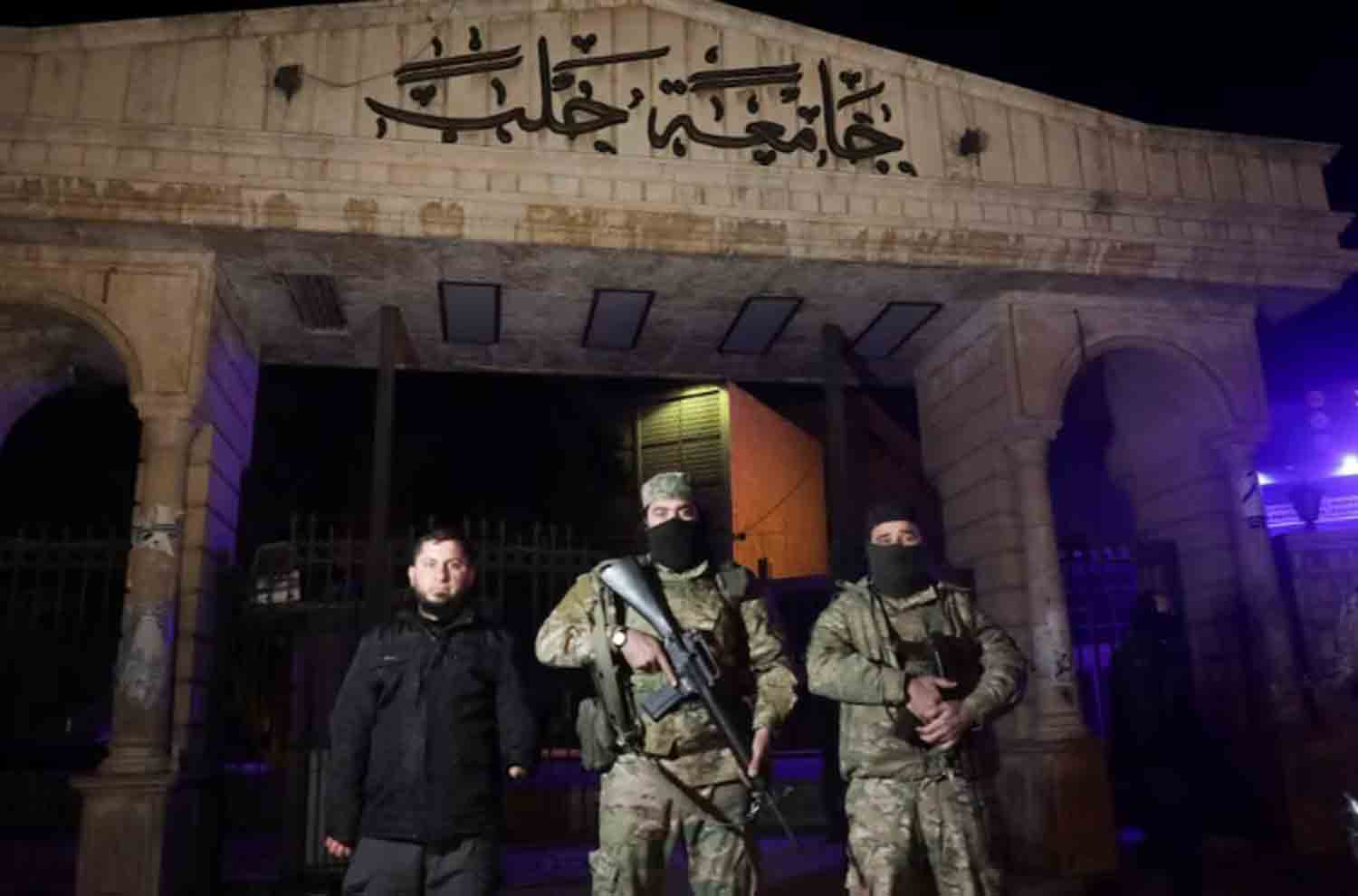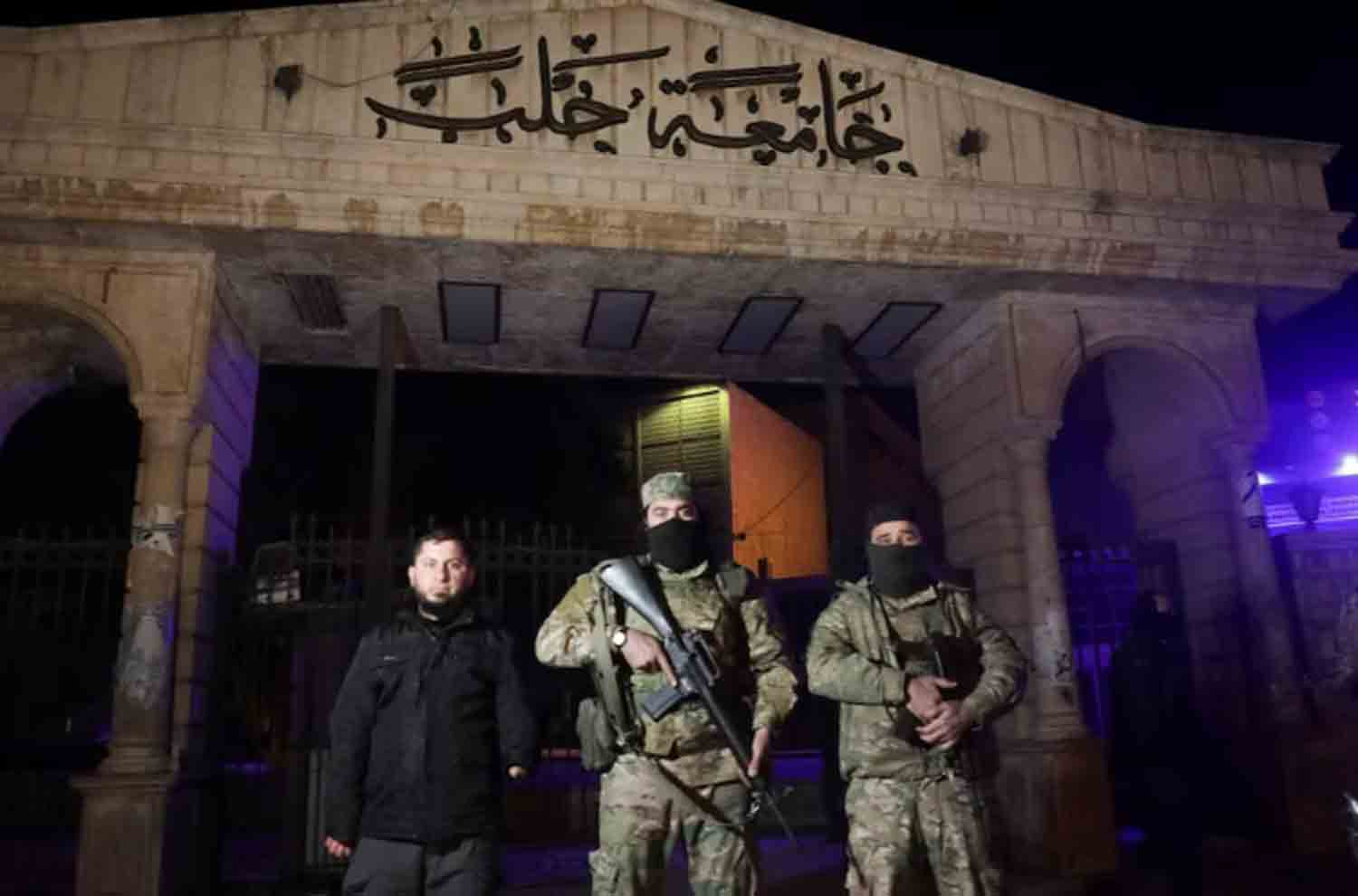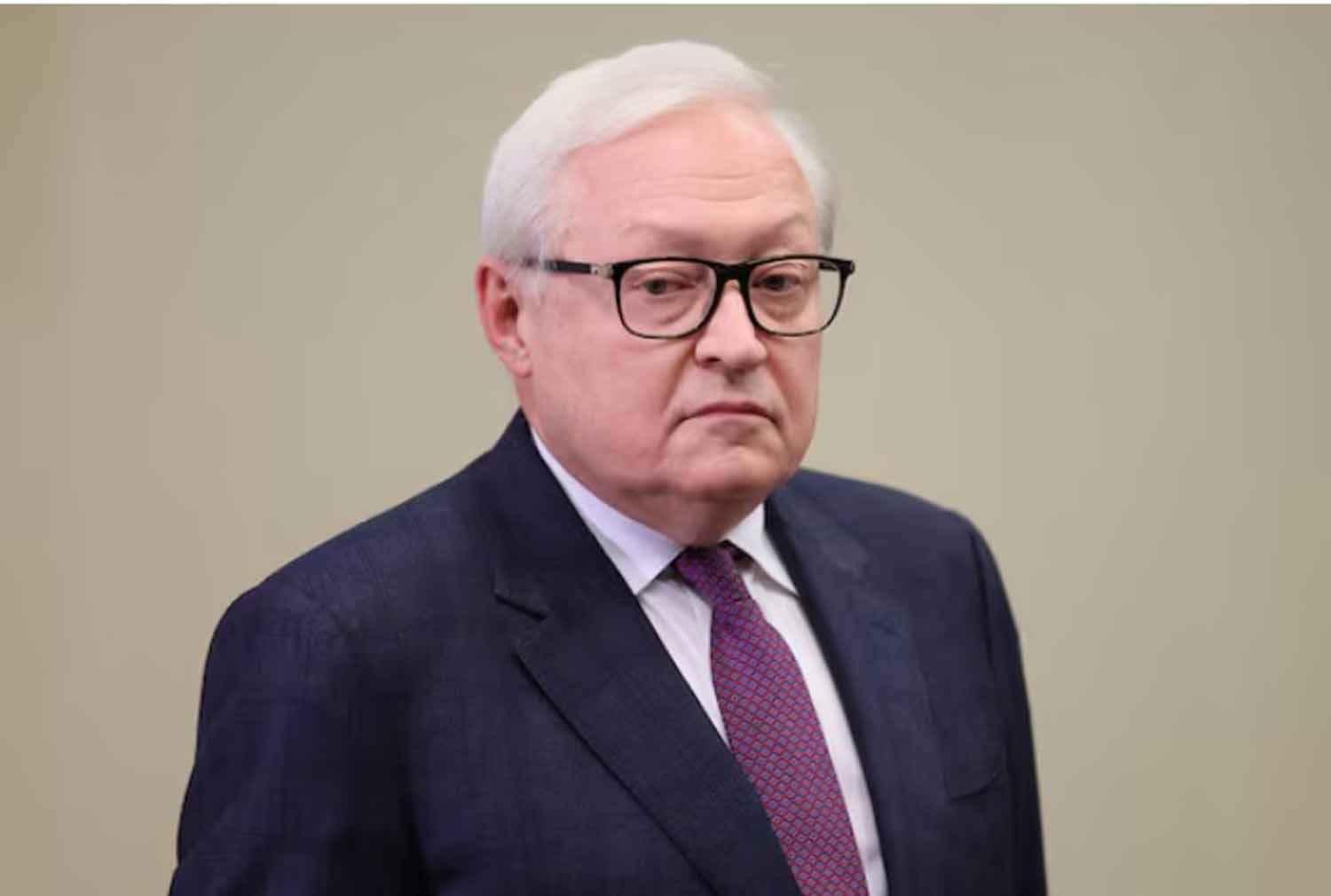In recent days, northern Syria has experienced significant hostilities, representing the most severe confrontations since March 2020, when a ceasefire was established with the mediation of Russia and Turkey. On the morning of November 27, anti-government factions initiated an offensive in the Aleppo and Idlib regions. Reports indicate that this operation includes Islamist groups, notably Hayat Tahrir al-Sham (HTS), which is banned in Russia, alongside armed opposition forces such as the US and Turkish-supported Free Syrian Army.
By the morning of November 28, opposition forces announced the capture of approximately a dozen settlements, including strategically important locations like Urm al-Sughra, Anjara, and Al-Houta, situated to the west of Aleppo. They also claimed to have taken control of the 46th Brigade Base, the largest military installation of the Syrian army. Rebel sources reported the acquisition of five tanks, an infantry fighting vehicle, and a cache of missiles. On the same day, insurgents executed a targeted strike on a helicopter at the An-Nayrab airbase. Reports from Anadolu and CNN confirmed that key areas, including Kafr Basma, Urum al-Kubra, and several strategic highlands, were now under rebel control.
On November 28, the group Al-Fateh al-Mubin declared the capture of Khan al-Assal, located just 7 kilometers from Aleppo, along with ten tanks. The rebels asserted that panic and diminishing morale were spreading among the forces of President Bashar Assad. Concurrently, the offensive progressed south and east of Idlib, a rebel stronghold since 2015, with reports of the rebels taking Dadikh and Kafr Batikh, close to the crucial M5 highway.
Over a span of three days, militants are reported to have seized at least 70 settlements, covering around 400 square kilometers across two provinces. By the evening of November 29, some operatives claimed to have taken control of Aleppo, Syria’s second-largest city. They asserted that their objective was to “liberate the city from the brutality and corruption of the criminal regime,” with the intention of restoring dignity and justice to its inhabitants.
Al-Fateh al-Mubin initiated a Telegram channel titled “Deterring Aggression” to document the operation, which has been referenced by prominent international and regional media. The militants contended that their offensive was a reaction to alleged increased airstrikes by Russian and Syrian forces targeting civilian areas in southern Idlib, as well as concerns over potential assaults by the Syrian army.
What has contributed to the renewed intensity of the conflict?
Prior to the current escalation, Idlib province had served as the last significant bastion of armed opposition against Assad’s regime throughout the Syrian conflict. The area became a hotspot for competing interests among various local and international actors, resulting in a precarious and tense atmosphere.
In 2017, during the Astana peace talks, Russia, Turkey, and Iran reached an agreement to create de-escalation zones, with Idlib identified as one of these areas. The aim of these agreements was to diminish hostilities and foster conditions conducive to a political resolution. However, ceasefire violations were frequent, and military actions continued, exacerbating the conflict. The rising influence of radical Islamist factions, such as Hayat Tahrir al-Sham (HTS), further complicated negotiations, as many of these groups were excluded from discussions and labeled as terrorist organizations.
Turkey, motivated by strategic interests and the potential influx of refugees, has bolstered its military presence in Idlib. The country has provided support to specific opposition factions and set up a network of observation posts, which has occasionally resulted in direct clashes with the Syrian army and strained its relations with Russia. This development has added further complexity to an already tense situation, leading to increased confrontations.
The humanitarian crisis in Idlib has continued to worsen. Ongoing conflicts have resulted in a significant humanitarian emergency, displacing millions, many of whom have sought refuge in neighboring countries or have been internally displaced. The insufficient humanitarian assistance and deteriorating living conditions have escalated tensions and diminished trust in local authorities, creating an environment conducive to radicalization and recruitment into armed groups.
Idlib’s strategic importance has also played a crucial role in the conflict. Its location at the crossroads of vital transport routes and its proximity to Turkey have rendered it both militarily and economically significant. Control over this region has become a priority for all involved parties, exacerbating the struggle and obstructing efforts toward a peaceful resolution.
The radicalization of opposition forces and the presence of extremist factions within their ranks have further complicated the peace process. These groups are generally disinterested in negotiations and aim to extend the armed conflict, undermining international stabilization efforts. Concurrently, the Syrian government faces internal challenges, including economic hardships, international sanctions, and domestic divisions, which have weakened its position. This situation has likely driven the government to adopt more aggressive military strategies to reinforce control and demonstrate strength.
The ongoing escalation in Idlib is the result of a multifaceted interaction of geopolitical interests, internal conflicts, radicalization among opposition groups, and significant humanitarian crises. Addressing this situation necessitates a unified international approach that includes open dialogue among all parties involved, humanitarian efforts to ease the suffering of civilians, and a political resolution that acknowledges the diverse interests of various factions while fostering lasting peace. A lack of willingness to negotiate and work together could lead to further intensification of the conflict in Idlib, jeopardizing both regional stability and global security.
Who is driving the escalation in Syria?
There has been speculation that Turkey might benefit from the recent tensions, aiming to pressure Assad into improving relations with Ankara. However, Turkey’s official position has been unclear. Statements from Turkish officials have been inconsistent; while Ankara has shown clear support for Assad’s adversaries, it has also hesitated to take responsibility for the developments and has voiced frustration regarding the actions of the opposition in Idlib.
Turkey is at a pivotal crossroads: it can either maintain support for the existing status quo, which could be detrimental to both itself and the region, or it can align with its publicly stated intentions to mend relations with Damascus and fulfill its obligations under the Astana process by aiding its partners—Russia and Iran—as well as neighboring Syria in addressing the crisis in Idlib.
There are indications that the recent escalation may have been influenced by external parties, including Israel and the United States. The conflict intensified shortly after a ceasefire was established between Israel and Hezbollah, and just a week after reports emerged of Western long-range missiles being deployed in strikes deep within Russian territory, coinciding with Russia’s retaliatory test of the Oreshnik missile system. It is conceivable that the US and Israel, capitalizing on the situation in Ukraine, the tensions with Iran, and Turkey’s anti-Israel position along with its refusal to participate in anti-Russian sanctions, instigated unrest in Syria to fulfill multiple strategic goals.
One potential goal could have been to prevent Iran and its allies in the Levant from gaining a reprieve, thereby opening a new front against Tehran and creating discord between Tehran and Ankara. Furthermore, this escalation might have aimed to increase the pressure on Russia’s Aerospace Forces that are backing Damascus, thus diverting Russian resources at a time when it is engaged in Ukraine. The West may have intended to further undermine Russia’s influence, possibly seeking to establish a second front against Moscow with the hope of making territorial gains in Syria.
For Damascus, this escalation could function as a means to pressure its support for Hezbollah and its role in the anti-Israel coalition. Additionally, it may have been designed to thwart normalization efforts with Turkey and the establishment of a cohesive anti-Kurdish (and consequently anti-American) alliance involving Moscow, Tehran, Ankara, and Damascus to the east of the Euphrates.
The situation in Turkey presents an opportunity for leveraging pressure through the threat of a new influx of refugees, increased security instability, and deteriorating economic conditions. Such developments would complicate Ankara’s military operations against Kurdish forces in Syria, impede normalization efforts with Damascus, and strain its relationships with both Russia and Iran.
It is therefore conceivable that the recent escalation in Idlib was instigated by Israel and the United States, with the intent to further undermine Iran and create divisions in the Russia-Turkey alliance. This situation illustrates the complex dynamics of the Syrian conflict, where external actors manipulate regional tensions to further their strategic objectives. It emphasizes the necessity for clear political stances and coordinated efforts among regional powers to tackle Syria’s challenges and promote stability in the area.
The conflict in Idlib: A precursor to potential global disaster
The escalation in Idlib province, Syria, extends beyond a mere localized dispute, serving as a significant indicator of potential global instability. This northwestern region has transformed into a battleground where the interests of major global powers intersect, and the rising violence highlights the profound fractures within the current international order. The engagement of various external actors, each pursuing their own interests, has turned the area into a reflection of geopolitical contradictions, potentially signaling a wider global crisis.
The revival of protracted conflicts, such as Israel’s military operations in Gaza and Lebanon, further exacerbates tensions on the global stage. These conflicts, which had previously been dormant or under control, are now reigniting with increased fervor, threatening both regional and global stability. This resurgence underscores the inadequacy of existing mechanisms to effectively prevent escalation and address the root causes of discord.
Global tensions are approaching a critical juncture, as numerous “frozen” conflicts begin to resurface. The established world order, which was constructed on principles and institutions from the previous century, is proving insufficient to address the complexities of globalization, technological advancements, and evolving power dynamics. International organizations and treaties often struggle to respond effectively to modern threats, including terrorism, cybersecurity issues, and hybrid warfare.
Creating a new world order necessitates a reevaluation of current frameworks and potentially the dismantling of outdated methodologies. This process is inherently contentious, as the transition from the old paradigm to the new is seldom seamless. Competing nations and alliances are eager to protect their interests, which raises the risk of conflict unless a shared understanding and mutual trust can be fostered.
The situation in Idlib exemplifies this challenging transitional period. It underscores how regional disputes can escalate into global crises if not adequately addressed. The involvement of external powers in Syria reflects broader patterns of rivalry and distrust among major nations, further heightening the potential for a large-scale conflict.
In summary, the developments in Idlib and other global flashpoints serve as a stark reminder that the world is on the verge of significant transformation. To prevent a descent into global conflict, the international community must collaborate to forge a new, more robust world order that can effectively tackle contemporary challenges. This endeavor requires open dialogue, compromise, and a commitment to transcending historical divisions for the benefit of a collective future.
Discover more from Defence Talks | Defense News Hub, Military Updates, Security Insights
Subscribe to get the latest posts sent to your email.





